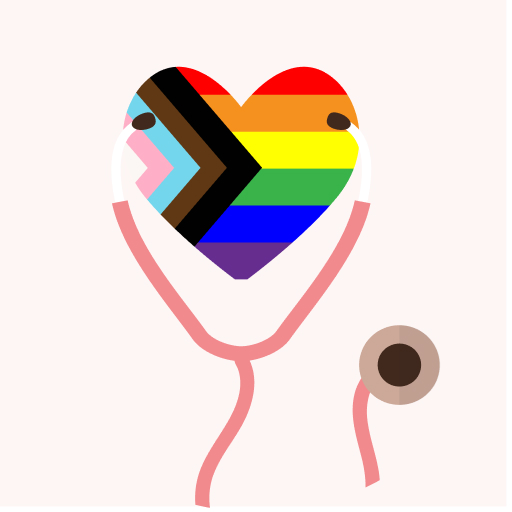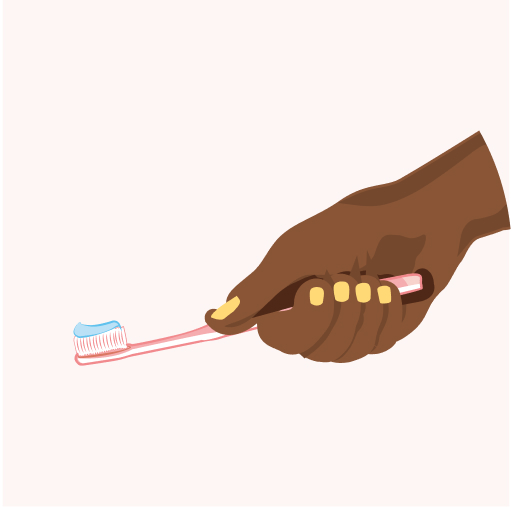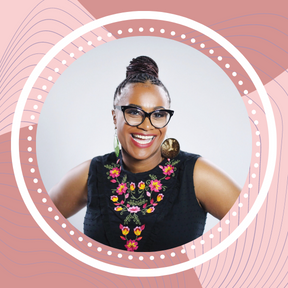
How to Practice Self-Care During COVID-19 as a Black, Female Professional
Right now, you may be experiencing some anxiety, depression, or a mix of both. And, if you are working more than ever due to the COVID-19 pandemic, you may be experiencing some level of burnout because you are on the front lines serving as a doctor, nurse, doula, midwife, cashier, stock clerk, mail carrier, factory worker, pharmacist, etc.. Your services are needed more than ever. It can truly take a toll on you physically and emotionally, where you are struggling with how to provide self-care for yourself.
Whether you are on the front line or an entrepreneur, this type of stress can wear and tear on you after a while. Burn-out is an occupational phenomenon and a condition resulting from chronic workplace stress that has not been successfully managed.
When trying to prevent burn out, remember no two people are alike, so you can try a combination of regular exercise, practicing relaxation techniques, hobbies, or learning new coping strategies to deal with stress. The most important thing is to put aside some uninterrupted time to check in with yourself and how you’re feeling. You can check in with yourself by doing a body scan, which includes identifying where, in your body, you feel, or are experiencing aches, pains, and other symptoms that may indicate the need for stress management. Ignoring the crucial clues that your body is trying to communicate to you continues the unnecessary suffering and need to implement necessary lifestyle changes.
There are a variety of burnouts, so different symptoms require different solutions. One intervention can be practicing targeted self-care! Self-care varies and looks different from person to person. Generally, self-care involves engaging in behaviors or activities that promote health and well-being to feel better physically and emotionally. However, humans are more than their physical body and emotions.
I like to approach self-care from a model I coined as the “PEMSS” model – a holistic approach that is targeted for your specific needs when feeling burnout in these five areas: Physical, Emotional, Mental, Social and Spiritual.
When you assess yourself for burnout accurately, you can implement applicable, direct self-care that will leave you recharged and rejuvenated. Looking at self-care from this approach will eradicate the challenge of identifying self-care behaviors that are ineffective for maintaining personal and professional well-being in the face of the unique demands of work and the current pandemic.
If you are fine physically, but emotionally burnt-out, identify which of your emotions are running high or low impacting your mood. You could practice self-compassion with gentle, affirming words you say to yourself. You could practice self-compassion by taking the time to complete tasks. You could watch a funny movie to make you laugh. For pet lovers, cuddle with your pet to increase positive emotions.
If you are fine emotionally but are physically burnt-out, try unplugging from social media to rest your mind. Based on the climate right now, you may not be able to take time off from work, but instead, you can read a good book to help shift your mind away from the pandemic. Not everyone likes to journal and practice self-reflection, however, thought dumping or journaling can be very therapeutic. I would also suggest drawing, coloring, doodling, doing a Zentangle, painting, listening to your favorite music, monitor your screen time (computers, phone, television) as needed, watch a funny movie and most of all, ask for help and be open to receiving it.
If you need spiritual self-care, pray and meditate in a space, even if it is your bathroom, to align and anchor yourself spiritually. If you have a patio or porch, do it outside in nature and practice deep breathing and relaxation before going to work and before bed.
Since we are all practicing social distance, you may be feeling more disconnected than ever. If you need social self-care, schedule a zoom call with family, friends, and associates over coffee, lunch, or dinner to talk. Avoid talking about the pandemic and work. Shift your energy to something positive that will leave you both feeling recharged and rejuvenated.
Lastly, set boundaries with your supervisor, co-workers, and/or staff. Sometimes, we do not know how to treat ourselves, overdo things, and push ourselves past a healthy limit. The choices we make are sometimes not made in our own best interest even when we want to say or do otherwise. When you set boundaries with yourself, you learn how to monitor your behavior and create a healthy structure for your life overall so it can run smoother. You are literally identifying what is “good” for you and what is not. Self-boundaries also help with avoiding burnout.
Here are 16 questions to consider for targeted self-care:
-
1.
What can I do when I wake up to set a bright tone for the rest of my day?
-
2.
What do I need this evening to relax and genuinely unwind?
-
3.
How am I feeling?
-
4.
How can I prioritize my mental health today?
-
5.
What is something fun I can plan for this week?
-
6.
How would I like my space to make me feel?
-
7.
What scent would I want to smell in my home/office/car/body?
-
8.
What makes me laugh?
-
9.
What inspires me?
-
10.
What kind of movement feels good to me?
-
11.
What is a simple boundary I can set that supports me?
-
12.
What do I need to express to someone?
-
13.
What is one relationship I’d like to nurture today, this week or month?
-
14.
How do I feel when I scroll my social media feed?
-
15.
What do I yearn to stop doing?
-
16.
Have I been trying to escape certain activities? What? Why?
Here are some therapy directories for disabled persons, LGBTQIA folk and people of color :
National Queer and Trans Therapists of Color Network
Association of Black Psychologists
Thriving Campus (For college students)
Open Path Collective (For underinsured, uninsured or low income)












